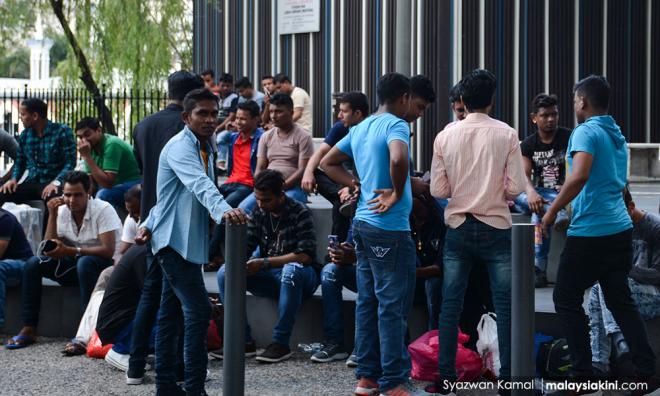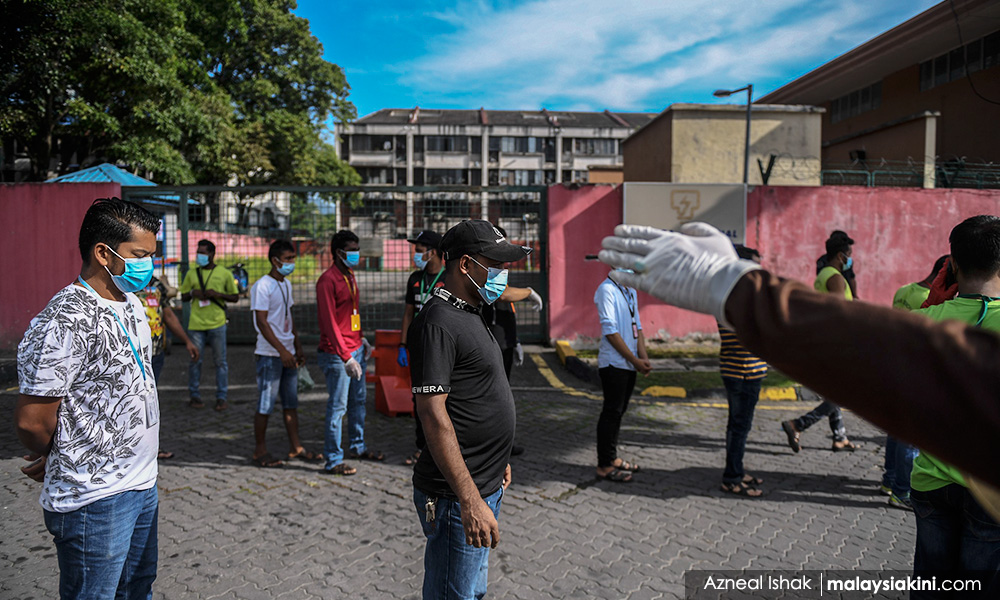
CORONAVIRUS | A group of NGOs have urged the government to do more to protect the health of non-citizens in the country, arguing that looking after such vulnerable communities will also benefit the health of citizens.
“It is everyone’s responsibility to ensure that the health of non-citizens is appropriately looked after,” the group said in a statement last night, noting that many non-citizens are vulnerable to various illnesses, including Covid-19, due to their cramped living and working conditions.
“Covid-19 affects everyone, no matter their place of birth or citizenship. For the disease to fully be eradicated in the country, we must care for everyone’s health,” the NGOs said.
The statement was jointly signed by the Malaysian Health Coalition, Beyond Borders Malaysia, the Malaysian Consultative Council of Islamic Organisations and Tenaganita.
The groups welcomed the Health Ministry’s move to target migrant populations in Malaysia for Covid-19 tests.
However, it said, more must be done to educate migrants and refugees about Covid-19.
“Education and prevention information must be in languages and media that they can access easily and understand.
“Migrant and refugee communities must also feel secure enough to seek medical assistance should they require it,” the four NGOs said.
Clear guidelines for migrant labour health needed
As parts of the economy resume operations, the group also urged the government to ensure economic sectors that depend on migrant labour have clear guidelines and procedures for maintaining their health.
“These guidelines and SOPs must be developed together with the Health Ministry. Enforcement must be built into the guidelines, together with penalties for non-compliance.
“As evidence surrounding the use of face masks emerges, the Malaysian government and businesses must also respond appropriately,” they said.
They also urged the government to introduce a moratorium on evictions for all residents living in rental premises in Malaysia.
This would help not only Malaysian citizens, but also refugees and migrant communities who may struggle to pay rent.
Meanwhile, in a separate statement, Amnesty International’s Malaysia chapter criticised Defence Minister Ismail Sabri Yaakob’s statement that undocumented migrants identified in areas under enhanced movement control order would be detained in immigration facilities once the order is lifted.

Amnesty International Malaysia interim executive director Preethi Bhardwaj said the move could put undocumented migrants at increased risk of contracting Covid-19.
The government should instead ensure adequate access to healthcare to everyone regardless of nationality, Preethi said.
“During a global public health crisis, detention solely for migration-related reasons is unjustifiable.
“Immigration detention centres in Malaysia are well known for their poor conditions. In a time of a global pandemic, placing undocumented migrants in overcrowded and filthy detention centres and so-called special prisons will only accelerate the spread of Covid-19,” she said.
Preethi added: “It is even more concerning that Taman Murni in Selayang is one of the places undocumented migrants will reportedly be rounded up.
“This area houses many Rohingya refugees who are at risk of being deported back to Myanmar, where they face ethnic cleansing by the Myanmar government.”
During his daily media briefing yesterday, Ismail said all undocumented migrants found in areas under enhanced movement control order would be detained in immigration facilities once the order is lifted.
If the need arises, they may also be sent to temporary prisons set up by the Home Ministry to house prisoners who violate the movement control order. Eleven such temporary prisons have been gazetted by the ministry. - Mkini


No comments:
Post a Comment
Note: Only a member of this blog may post a comment.